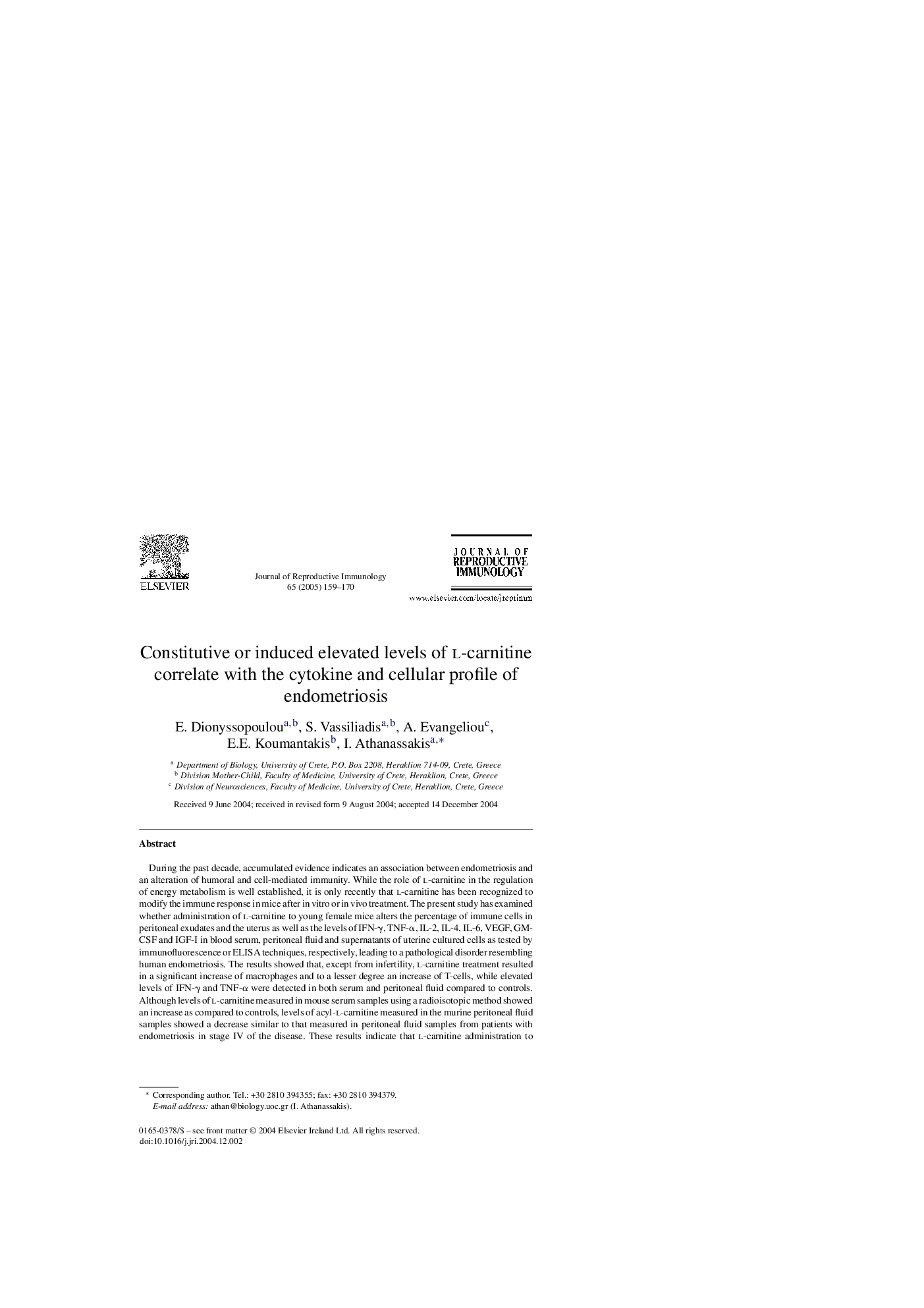| Article ID | Journal | Published Year | Pages | File Type |
|---|---|---|---|---|
| 9331050 | Journal of Reproductive Immunology | 2005 | 12 Pages |
Abstract
During the past decade, accumulated evidence indicates an association between endometriosis and an alteration of humoral and cell-mediated immunity. While the role of l-carnitine in the regulation of energy metabolism is well established, it is only recently that l-carnitine has been recognized to modify the immune response in mice after in vitro or in vivo treatment. The present study has examined whether administration of l-carnitine to young female mice alters the percentage of immune cells in peritoneal exudates and the uterus as well as the levels of IFN-γ, TNF-α, IL-2, IL-4, IL-6, VEGF, GM-CSF and IGF-I in blood serum, peritoneal fluid and supernatants of uterine cultured cells as tested by immunofluorescence or ELISA techniques, respectively, leading to a pathological disorder resembling human endometriosis. The results showed that, except from infertility, l-carnitine treatment resulted in a significant increase of macrophages and to a lesser degree an increase of T-cells, while elevated levels of IFN-γ and TNF-α were detected in both serum and peritoneal fluid compared to controls. Although levels of l-carnitine measured in mouse serum samples using a radioisotopic method showed an increase as compared to controls, levels of acyl-l-carnitine measured in the murine peritoneal fluid samples showed a decrease similar to that measured in peritoneal fluid samples from patients with endometriosis in stage IV of the disease. These results indicate that l-carnitine administration to female mice alters the cellular and growth factor profile in the uterus and peritoneum towards a phenotypical pathology similar to that of clinical endometriosis.
Related Topics
Life Sciences
Immunology and Microbiology
Immunology
Authors
E. Dionyssopoulou, S. Vassiliadis, A. Evangeliou, E.E. Koumantakis, I. Athanassakis,
